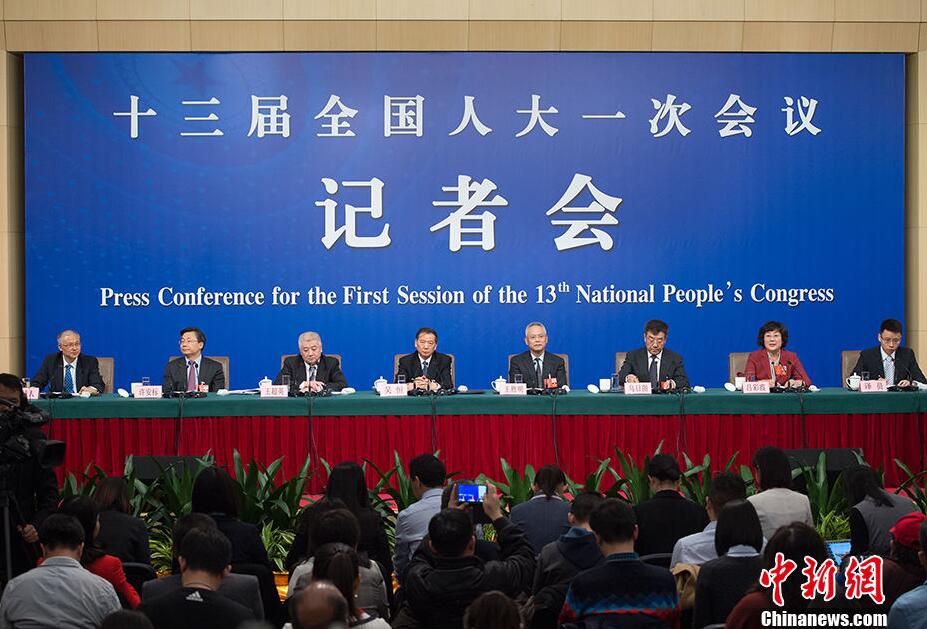
Service portal The total service portal functions should include "registration and login, operation desk, my order, my warehouse, my products, my accounts, supplier information, customer center, signing agreement and message center" and so on.
The basic modules of an SCM supply chain system include raw material management, production management, coding management, warehouse management, distribution management, anti-counterfeiting management, anti-smuffuling management, permission management and other functional modules.Raw material management: including raw material procurement, inspection, raw material traceability, warehousing and suppliers and other modules.
The ERP system mainly includes the following functional modules: supply chain management modules: including procurement, inventory management, inventory control, logistics management, etc.
1. There are customer management subsystem, supplier management subsystem, procurement management subsystem, warehouse management subsystem, etc. Supply chain management system refers to the integration of key business processes and corporate relationships from material suppliers to users in the entire supply chain in order to provide customers with goods, services or information.
2. Supply chain management system is a structured framework and method used to plan, coordinate, execute and monitor supply chain activities within an organization.This system aims to ensure that the supply chain can operate efficiently and meet customer needs, while reducing costs, improving quality and enhancing competitiveness.
3. User-friendly interface: The digital supply chain management system needs to design a user-friendly interface so that users can easily access and use the system. This includes multilingual support, intuitive navigation and easy-to-use reporting functions.

1. Supply chain management system is a structured framework and method for planning, coordinating, executing and monitoring supply chain activities within an organization. This system aims to ensure that the supply chain can operate efficiently and meet customer needs, while reducing costs, improving quality and enhancing competitiveness.
2. Supply chain is the whole process of a product from the purchase of raw materials to the successful sale of products. It can be understood as a chain related to the product. The links of purchasing materials, processing materials and selling products are closely connected by the chain, and each link has a huge relationship with the quality of the product. Contact.
3. Supply chain logistics management refers to a logistics management system centered on the core products or core business of the supply chain.
4. The content and significance of the concept of supply chain management. The ideas and methods of supply chain management have been applied in many enterprises and have made great achievements.
5. Briefly analyze what is a supply chain management system and its importance. Supply chain management system refers to the integration of key business processes and relationships of enterprises in the entire chain from the original material supplier to the end user to provide goods, services or information to end customers.
1. Supply chain management platform is a software system that integrates various supply chain management functions, aiming to coordinate, monitor and optimize the entire supply Chain process.The supply chain management platform usually integrates procurement, production, logistics, inventory management, order processing and other links to improve overall efficiency and transparency.
2. Supply chain management system refers to the integration of key business processes and relationships of enterprises in the entire chain from the original material supplier to the end user to provide goods, services or information to end customers.
3. Supply chain management system is a structured framework and method for planning, coordinating, executing and monitoring supply chain activities within an organization. This system aims to ensure that the supply chain can operate efficiently and meet customer needs, while reducing costs, improving quality and enhancing competitiveness.
4. Supply chain management is mainly to optimize the operation of the supply chain, so that the supply chain can be the whole process from procurement to satisfying the end customer at the lowest cost.
5. Supply Chain Management (SCM) is an all-round enterprise management application software that can help enterprises realize the comprehensive automation of the entire business operation.
UEFA live free-APP, download it now, new users will receive a novice gift pack.
Service portal The total service portal functions should include "registration and login, operation desk, my order, my warehouse, my products, my accounts, supplier information, customer center, signing agreement and message center" and so on.
The basic modules of an SCM supply chain system include raw material management, production management, coding management, warehouse management, distribution management, anti-counterfeiting management, anti-smuffuling management, permission management and other functional modules.Raw material management: including raw material procurement, inspection, raw material traceability, warehousing and suppliers and other modules.
The ERP system mainly includes the following functional modules: supply chain management modules: including procurement, inventory management, inventory control, logistics management, etc.
1. There are customer management subsystem, supplier management subsystem, procurement management subsystem, warehouse management subsystem, etc. Supply chain management system refers to the integration of key business processes and corporate relationships from material suppliers to users in the entire supply chain in order to provide customers with goods, services or information.
2. Supply chain management system is a structured framework and method used to plan, coordinate, execute and monitor supply chain activities within an organization.This system aims to ensure that the supply chain can operate efficiently and meet customer needs, while reducing costs, improving quality and enhancing competitiveness.
3. User-friendly interface: The digital supply chain management system needs to design a user-friendly interface so that users can easily access and use the system. This includes multilingual support, intuitive navigation and easy-to-use reporting functions.

1. Supply chain management system is a structured framework and method for planning, coordinating, executing and monitoring supply chain activities within an organization. This system aims to ensure that the supply chain can operate efficiently and meet customer needs, while reducing costs, improving quality and enhancing competitiveness.
2. Supply chain is the whole process of a product from the purchase of raw materials to the successful sale of products. It can be understood as a chain related to the product. The links of purchasing materials, processing materials and selling products are closely connected by the chain, and each link has a huge relationship with the quality of the product. Contact.
3. Supply chain logistics management refers to a logistics management system centered on the core products or core business of the supply chain.
4. The content and significance of the concept of supply chain management. The ideas and methods of supply chain management have been applied in many enterprises and have made great achievements.
5. Briefly analyze what is a supply chain management system and its importance. Supply chain management system refers to the integration of key business processes and relationships of enterprises in the entire chain from the original material supplier to the end user to provide goods, services or information to end customers.
1. Supply chain management platform is a software system that integrates various supply chain management functions, aiming to coordinate, monitor and optimize the entire supply Chain process.The supply chain management platform usually integrates procurement, production, logistics, inventory management, order processing and other links to improve overall efficiency and transparency.
2. Supply chain management system refers to the integration of key business processes and relationships of enterprises in the entire chain from the original material supplier to the end user to provide goods, services or information to end customers.
3. Supply chain management system is a structured framework and method for planning, coordinating, executing and monitoring supply chain activities within an organization. This system aims to ensure that the supply chain can operate efficiently and meet customer needs, while reducing costs, improving quality and enhancing competitiveness.
4. Supply chain management is mainly to optimize the operation of the supply chain, so that the supply chain can be the whole process from procurement to satisfying the end customer at the lowest cost.
5. Supply Chain Management (SCM) is an all-round enterprise management application software that can help enterprises realize the comprehensive automation of the entire business operation.
 Hearthstone Arena Tier List
Hearthstone Arena Tier List
464.68MB
Check App to watch Champions League live free
App to watch Champions League live free
378.83MB
Check Arena Plus login
Arena Plus login
473.23MB
Check bingo plus update today
bingo plus update today
848.18MB
Check UEFA Champions League live streaming app
UEFA Champions League live streaming app
122.69MB
Check UEFA live free
UEFA live free
179.73MB
Check DigiPlus stock
DigiPlus stock
247.52MB
Check UEFA European championship
UEFA European championship
776.18MB
Check Casino Plus GCash login
Casino Plus GCash login
163.81MB
Check European Cup live
European Cup live
645.22MB
Check UEFA Champions League standings
UEFA Champions League standings
742.11MB
Check Bingo Plus
Bingo Plus
326.12MB
Check Casino Plus app
Casino Plus app
422.33MB
Check Casino redeem
Casino redeem
216.21MB
Check 100 free bonus casino no deposit GCash
100 free bonus casino no deposit GCash
543.73MB
Check UEFA Europa League
UEFA Europa League
126.45MB
Check UEFA EURO
UEFA EURO
976.58MB
Check 100 free bonus casino no deposit GCash
100 free bonus casino no deposit GCash
948.57MB
Check Arena plus APK
Arena plus APK
744.88MB
Check Casino redeem
Casino redeem
799.67MB
Check Hearthstone Wild Decks
Hearthstone Wild Decks
618.47MB
Check casino plus free 100
casino plus free 100
679.98MB
Check Hearthstone Arena class tier list 2024
Hearthstone Arena class tier list 2024
139.55MB
Check UEFA Champions League live
UEFA Champions League live
562.73MB
Check UEFA Champions League
UEFA Champions League
315.93MB
Check App to watch Champions League live free
App to watch Champions League live free
557.84MB
Check European Cup live
European Cup live
136.22MB
Check Bingo Plus stock
Bingo Plus stock
413.94MB
Check Hearthstone Arena win rate
Hearthstone Arena win rate
324.87MB
Check App to watch Champions League live free
App to watch Champions League live free
341.69MB
Check UEFA Champions League live streaming free
UEFA Champions League live streaming free
337.75MB
Check UEFA Champions League
UEFA Champions League
696.99MB
Check Hearthstone Arena Tier List
Hearthstone Arena Tier List
252.64MB
Check Hearthstone arena deck Builder
Hearthstone arena deck Builder
139.67MB
Check UEFA EURO
UEFA EURO
615.75MB
Check DigiPlus stock
DigiPlus stock
867.57MB
Check
Scan to install
UEFA live free to discover more
Netizen comments More
57 UEFA Europa League
2025-01-09 04:48 recommend
2598 DigiPlus
2025-01-09 04:46 recommend
1017 Walletinvestor digi plus
2025-01-09 04:43 recommend
61 DigiPlus
2025-01-09 04:23 recommend
2784 DigiPlus Philippine
2025-01-09 03:36 recommend